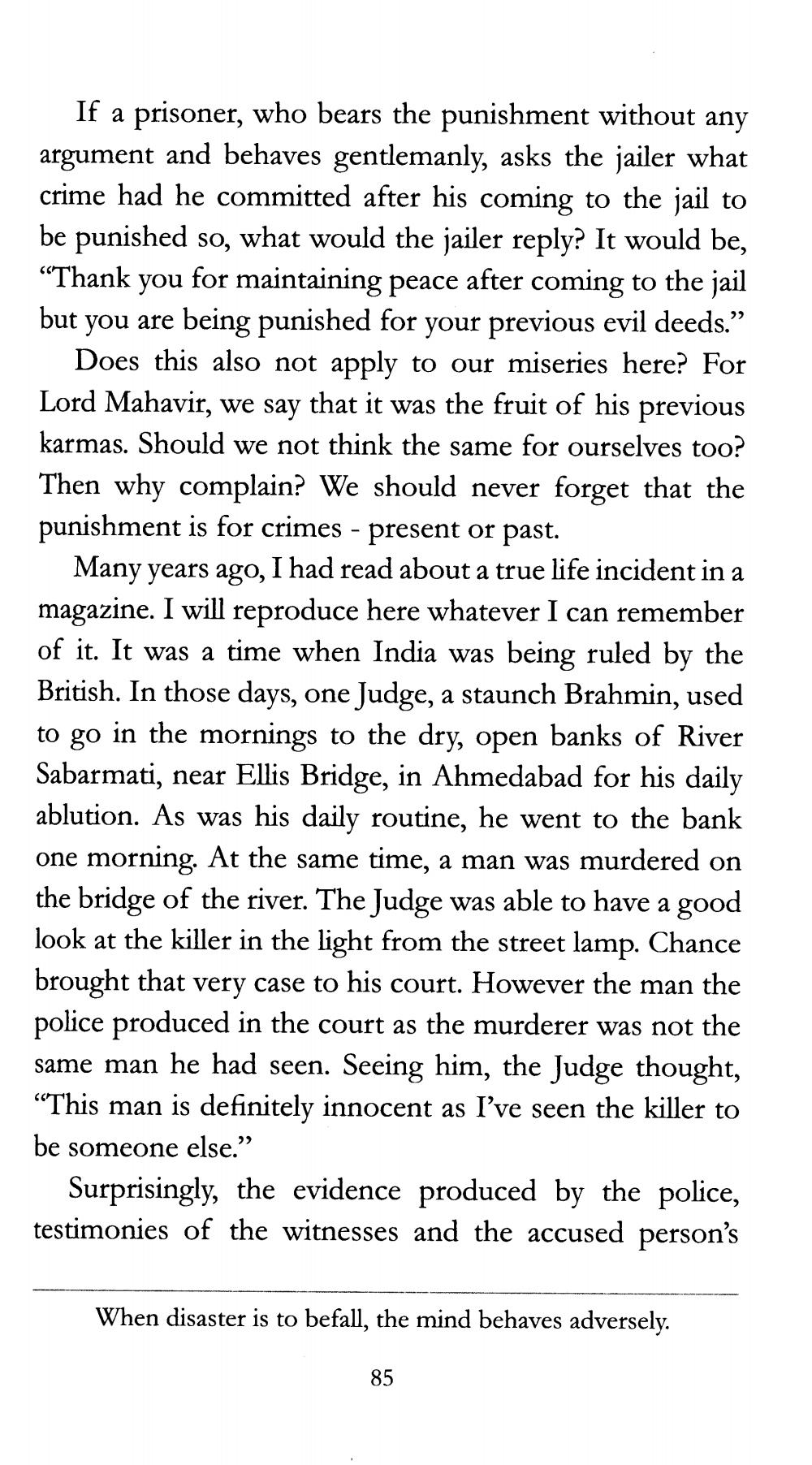________________
If a prisoner, who bears the punishment without any argument and behaves gentlemanly, asks the jailer what crime had he committed after his coming to the jail to be punished so, what would the jailer reply? It would be, "Thank you for maintaining peace after coming to the jail but you are being punished for your previous evil deeds.”
Does this also not apply to our miseries here? For Lord Mahavir, we say that it was the fruit of his previous karmas. Should we not think the same for ourselves too? Then why complain? We should never forget that the punishment is for crimes - present or past.
Many years ago, I had read about a true life incident in a magazine. I will reproduce here whatever I can remember of it. It was a time when India was being ruled by the British. In those days, one Judge, a staunch Brahmin, used to go in the mornings to the dry, open banks of River Sabarmati, near Ellis Bridge, in Ahmedabad for his daily ablution. As was his daily routine, he went to the bank one morning. At the same time, a man was murdered on the bridge of the river. The Judge was able to have a good look at the killer in the light from the street lamp. Chance brought that very case to his court. However the man the police produced in the court as the murderer was not the same man he had seen. Seeing him, the Judge thought, “This man is definitely innocent as I've seen the killer to be someone else.”
Surprisingly, the evidence produced by the police, testimonies of the witnesses and the accused person's
When disaster is to befall, the mind behaves adversely.
85




